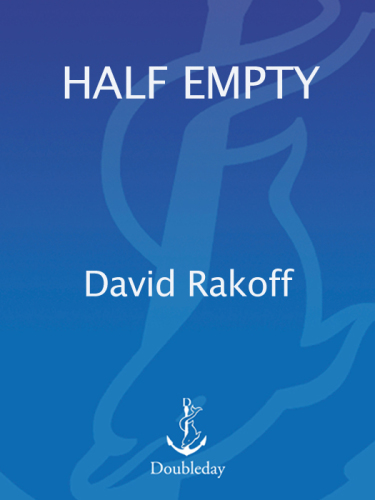
Half Empty
کتاب های مرتبط
- اطلاعات
- نقد و بررسی
- دیدگاه کاربران
نقد و بررسی

August 9, 2010
In this sardonic collection of essays, Rakoff (Don't Get Too Comfortable) plays the role of a naysayer who tries to convince the reader, with humorous asides and sarcastic one-liners, that the world is going to hell in a hand-basket and the nerds and geeks will someday be the globe's financial and political tyrants. His topics are a hodge-podge lot that covers hopes and dreams, the meaning of a Jew who eats pork, optimism, a stunted childhood, and the New York City Exotic Erotic Ball and Expo. While his wise-cracking humor isn't always on target, he shines when discussing the acceptance of grief and mortality in "All The Time We Have," and "the bohemian myth" of artists and Rent creator Jonathan Larson's demise the day before his popular show opened, in "Isn't It Romantic?"

June 15, 2010
A collection of humorous—albeit pessimistic—essays on humankind's incalculable foibles.
"Positive emotions may, of course, relate to good things," writes This American Life contributor Rakoff (Don't Get Too Comfortable, 2005, etc.), "but there is no necessary relationship." Throughout the book, the author hones in on this disconnect, debunking the myth of the power of positive thinking while arguing that "the bleak" (not the meek) will most likely inherit the earth. Rakoff manages to make pessimism sexy, whittling optimism into little more than an irresponsible fad, a modern opiate of the masses. While his first essay confronts this issue directly, the remaining pieces explore similar terrain. His subjects range from kosher diets and dying therapists to the author's own struggles with cancer. On occasion, Rakoff's work reads like off-the-cuff freestyle riffs, though most readers will trust him to return to his work's primary cause, even if he does so by the most circuitous route. The author regularly employs non-sequiturs as a literary technique, casting his arguments to the fringes of possibility before reeling them back in. His droll humor proves an asset when describing humankind's failures, allowing readers to roll their eyes while empathizing with the argument. After being ordered to read 2,000 manuscripts as part of his duties as the low man on the totem pole at a publishing house, he wearily admits, "They asked me to eat shit, and all I did was request a bigger spoon." While Rakoff seems to revel in his role as a modern-day Thomas Hobbes, it's evident that he remains responsible in his critique, never trouncing a subject without provocation while simultaneously opening the reader's eyes to everyday lunacy.
An unsentimental comic depiction of our inability to recognize our own short-sided logic.
(COPYRIGHT (2010) KIRKUS REVIEWS/NIELSEN BUSINESS MEDIA, INC. ALL RIGHTS RESERVED.)

August 1, 2010
In this, his third, compilation of essays, Rakoff invites into the ring Positivity, that plucky, perennial champ, and takes down the old grinner one forlorn blow at a time. Maintaining his signature and singular charm (Fraud, 2001; Dont Get Too Comfortable, 2005), Rakoff analyzes the heck out of common- ( and not-so-common-) place culture: the Hollywood Walk of Fame, Salt Lake City, a New York porn convention, to name names. Rakoff is so keenly observant and dead-on with his criticism, you get the impression most of our eyes would cross and cartoon birds fly above our heads before we could make it halfway to the elegant, smart conclusions he draws. Calling into question some of the institutions we hold closest to our hearts, and peppered with guilty, nose-crinkling laughs, this is a verbose, grandiose stockpile of sour grapesa writerly collection to make giddy even the most erudite lover of words. An undisputed KO for negative thinking.(Reprinted with permission of Booklist, copyright 2010, American Library Association.)

























دیدگاه کاربران